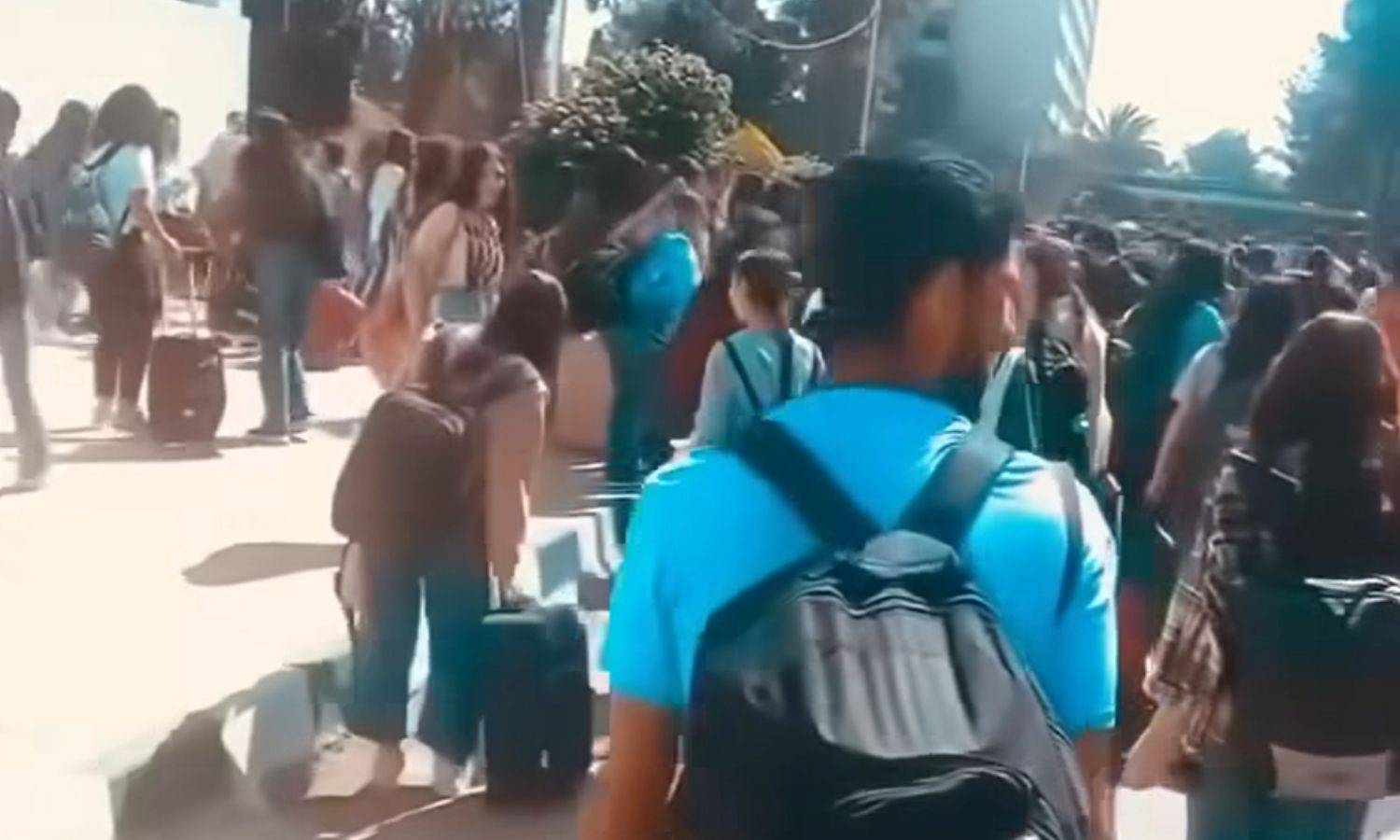A video circulating on social media Thursday, May 8, shows a group of students—reportedly from the southern province of Suweida—leaving the Damascus University dormitories en masse, allegedly following incidents of harassment.
The footage, dated April 28, shows mostly students from Suweida exiting the university housing compound in Damascus. The incident followed rising tensions after a controversial audio recording—reportedly insulting the Prophet Muhammad—was attributed to a Druze religious figure. The Syrian Ministry of Interior, as well as the cleric himself, later denied any involvement.
The director of Damascus University Housing, Ammar al-Ayoubi, told the state-run Al-Ikhbariya channel that the video was recorded about ten days earlier, shortly after the offensive audio circulated and before any incidents occurred in Jaramana or Sahnaya. He stressed, “The students left voluntarily; no one forced them to leave.”
Syria’s Minister of Information, Hamza Mustafa, addressed the issue via Facebook, stating he had spoken with Minister of Higher Education Marwan Halabi, who affirmed a firm rejection of “using university campuses as platforms for sectarian incitement or for undermining civil peace,” adding that violators would be held accountable.
Mustafa said Halabi had expressed readiness to coordinate with the Governor of Suweida and the Ministry of Interior to ensure the students’ safe return and protection, affirming that “our universities must remain beacons of knowledge and guardians of Syria’s cherished diversity.”
The local news platform Suweida 24, which covers events in the province, commented on the video, describing it as footage of Druze students being “evacuated” from a Syrian university after being targeted in sectarian attacks—ranging from death threats and attempted dormitory break-ins to incidents involving weapons. The platform criticized the silence of the Ministry of Higher Education and university administrations.
Syrian journalist and writer Maher Sharafeddine, a native of Suweida, also commented on the video, saying: “Some are attacking those sharing the footage, arguing it’s from Tuesday—not today! Whether it happened on Tuesday, Wednesday, or today, the result is the same: students leaving their universities.”
In an official statement on Facebook, Halabi insisted that “conditions inside student housing are stable and calm.” He denied the authenticity of recent circulating videos, claiming they are outdated and “do not reflect the current reality.”
Halabi stressed that relations among students in university housing are generally “characterized by mutual respect and social harmony,” and warned against the spread of rumors or old footage that could “unnecessarily destabilize the student environment.” He urged media outlets and social media users to verify information before sharing it.
A third-year journalism student from Suweida, residing in the Mezzeh dormitory, spoke to Enab Baladi on condition of anonymity. She confirmed that while some students had indeed faced harassment, it was “limited in scope and not as dramatic as portrayed online.”
Meanwhile, on April 27, the dormitory at the University of Homs witnessed an attack by several students against their Druze peers, following the circulation of the same offensive audio recording.
Speaking to Enab Baladi on May 2, Homs dormitory director Khaled Jumaa said the housing situation had since returned to normal, assuring that “students feel safe and secure.” He added that those responsible for the assault had been “duly held accountable by public security and referred to the judiciary,” and described claims to the contrary as “false and baseless.”
This article was translated and edited by The Syrian Observer. The Syrian Observer has not verified the content of this story. Responsibility for the information and views set out in this article lies entirely with the author.


